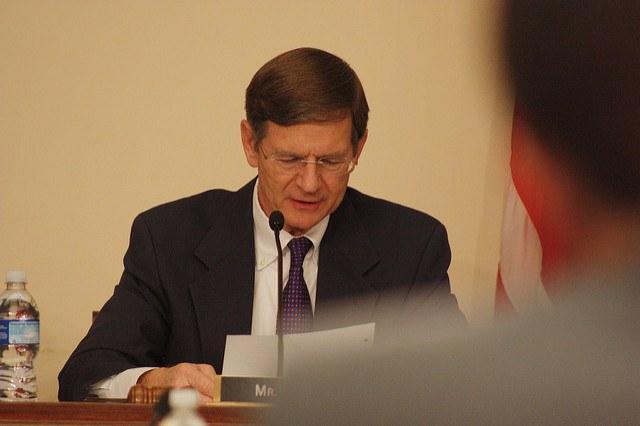
Lamar Smith (R-Texas), chair of the House Science Committee, has used his position to demand emails and documents from state attorneys general and environmental NGOs as a response to their investigation of ExxonMobil. New York Attorney General Eric Schneiderman and the Union of Concerned Scientists are amongst the parties involved. They allege ExxonMobil suppressed climate change science, researched by the company’s own staff scientists over 30 years ago and Rep Smith has requested email logs from the accusers.
NGOs including 350.org and Greenpeace have pushed back, claiming that Smith’s subpoenas amount to federal overreach and have an ulterior agenda of interfering with their researchers’ work. In the latest twist of events, 350.org’s outside counsel requested a meeting with the Science Committee last month to discuss the subpoena and issues related to climate change science. According to 350.org, however, the request to meet Smith and the committee has been denied.
According to attorney Abbe David Lowell, congressional committees, including Science, have required a full committee vote or at least the consent of the ranking member before issuing subpoenas. In Lamar’s investigation, however, this has not been the case. The ranking minority member of the committee, Eddie Bernice Johnson (D-Texas), has long been critical of Smith’s tactics, which NGOs describe as a fossil fuel-funded vendetta against environmental organizations.
Smith’s refusal to engage in any discussion with the 17 attorneys general investigating ExxonMobil, or any NGOs involved in this legal fight, comes in the wake of what scientists have said is the hottest month in recorded human history. NASA and the National Oceanic and Atmospheric Association (NOAA), both of which have been ensnared in Smith’s investigations, recently announced that the earth’s temperature in July was 1.57°F (0.87°C) above 20th century averages. According to NOAA, last month marks the 15th consecutive month that the world’s land and oceanic surface temperature was the highest in NOAA’s 137 years of temperature record keeping.
Some publications, including the Wall Street Journal, have accused the attorneys general and the likes of 350.org of obstinacy and say that Smith is entitled to any requested information per Congress’s legal mandate. Schneiderman and the parties on the other side of this dispute have framed the controversy as a states’ rights issue, which has turned the traditional Republican mantra of screaming against federal overreach on its head.
Meanwhile, 350.org has presented ExxonMobil’s conduct as akin to the tobacco industry’s past suppression of its products’ impact on human health. These accusations against ExxonMobil, which has led to the extended Rockefeller family to sell their stock in the company, have galvanized a group of NGOs to launch a site and social media campaign, #ExxonKnew. The coalition of 12 NGOs and publications are imploring the general public to become informed of the issue and hold the company accountable to what they say is more than three decades of climate change denial at the risk of public health and the long term viability of the planet.
Image credit: Ryan J. Reilly

Leon Kaye has written for 3p since 2010 and become executive editor in 2018. His previous work includes writing for the Guardian as well as other online and print publications. In addition, he's worked in sales executive roles within technology and financial research companies, as well as for a public relations firm, for which he consulted with one of the globe’s leading sustainability initiatives. Currently living in Central California, he’s traveled to 70-plus countries and has lived and worked in South Korea, the United Arab Emirates and Uruguay.
Leon’s an alum of Fresno State, the University of Maryland, Baltimore County and the University of Southern California's Marshall Business School. He enjoys traveling abroad as well as exploring California’s Central Coast and the Sierra Nevadas.














